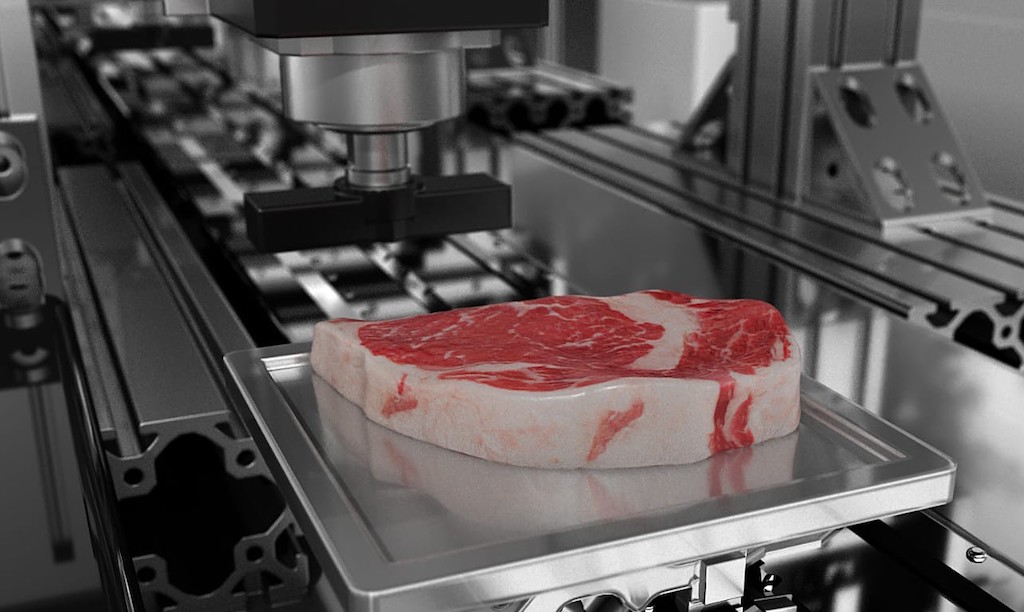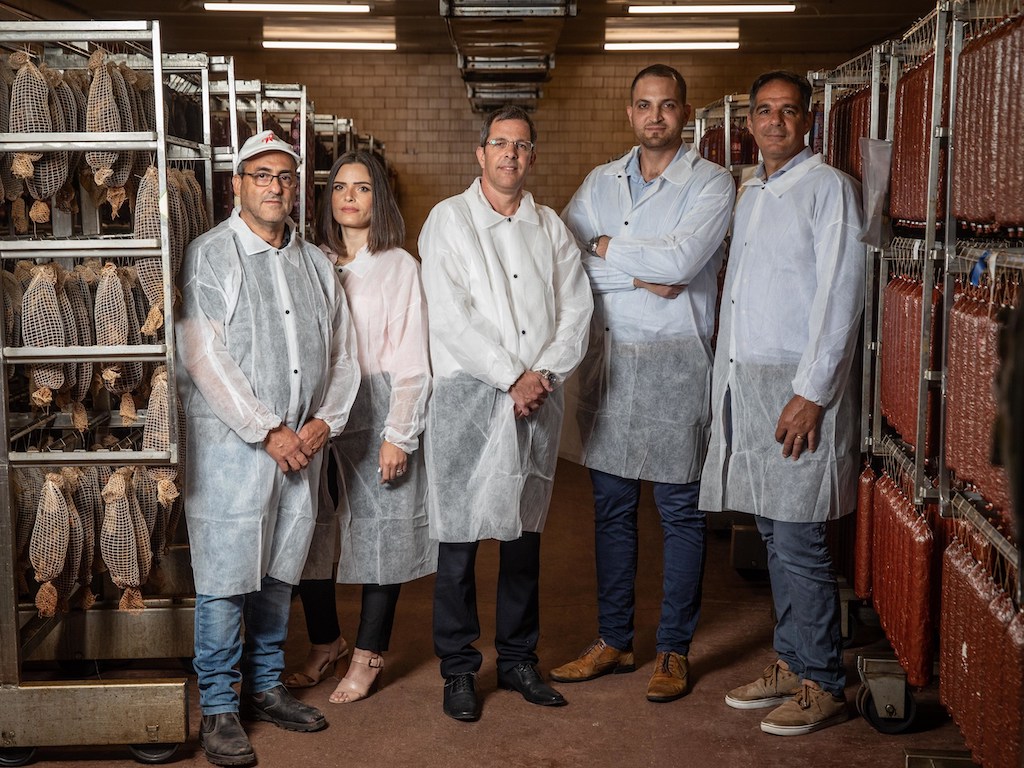3 Mins Read
Israeli food tech MeaTech has filed a patent application with the United States Patent and Trademark Office (USPTO) for its proprietary method of culturing fat using only plant-sourced inputs. The process enables the startup to create cell-based meat products that mimic the fatty marbling on real cuts of meat, such as Wagyu beef, at “significantly lower costs”.
MeaTech has announced its filing of a provisional patent application in the US for its process of producing cell-based fat. The Ness Ziona company’s method uses plant-sourced inputs to differentiate stem cells into fat cells, which can then be used to create the intramuscular fat for its cultivated meats.
MeaTech’s cell-based fat
According to MeaTech, its novel approach to cultivated fat production has the “potential to significantly lower costs” due to its use of only plant-sourced inputs. This means the company is able to go without animal-based cell-culturing media and other inputs, such as fetal bovine serum (FBS), which is non-slaughter-free and harvested from the fetuses of pregnant cows.

Aside from being cruelty-free and more cost-efficient, the startup says that it will complement the firm’s production of cell-based meats. Recently, MeaTech made clear its intentions to develop cell-based pork, on top of its existing portfolio of cultivated beef and chicken, created using its bio-printed structured meat technology.
The Israeli food tech says that its cell-based fat production method could be a stand-alone product, as well as incorporated into its line of cultured meats.
Marbled meat
For CEO Sharon Fima, the company’s novel method of producing cultured meat is ultimately going to help it create better-tasting, realistic and delicious whole-cut animal proteins—think cuts of steak or fillets of chicken.
“As we continue to work on developing and advancing technologies to produce cultivated fats and proteins, we are excited by the potential for using lower cost, plant-sourced cell-culturing inputs in hybrid as well as bioprinted products,” shared Fima.
“Our ultimate goal is that eventually cultured grown meat will taste, feel, and be as nutritious as conventionally produced meat.”
MeaTech’s latest patent application is only the latest in a suite of patents for its technologies, which so far include its bioprinting process, and supply chain and pre- and post-processing capabilities.

Working with big food
The latest news comes just weeks after MeaTech announced a partnership with Tiv Ta’am, a major supermarket chain and Israel’s biggest non-kosher pork and meat producer. The two firms are set to co-create cultivated meat products for the Israeli market, and potentially international markets as well.
While Eat Just remains the only firm to have been given the go-ahead to sell its cultured chicken bites in Singapore, with approval from the Qatar authorities expected in the near future as well, Israel is being closely watched by industry experts, given the country’s friendly government stance and concentration of food tech talent.
Last year, Israel’s prime minister Benjamin Netanyahu became the first head of government to taste cell-based meat, trying out steak developed by Rehovot-based Aleph Farms. Other cultivated protein players based in Israel include SuperMeat, Future Meat Technologies and BioMilk.
All images courtesy of MeaTech.




